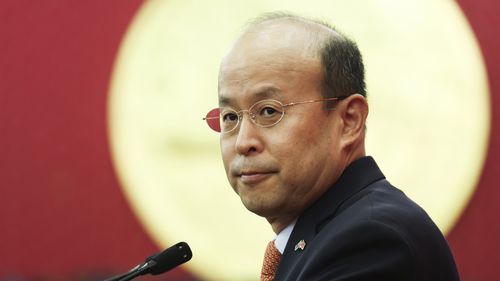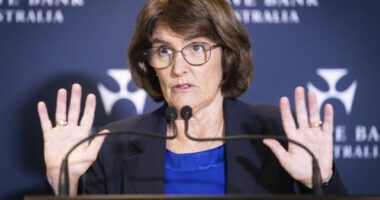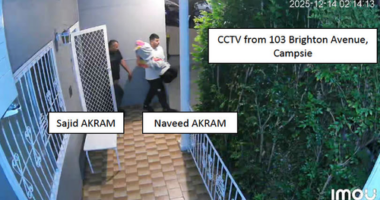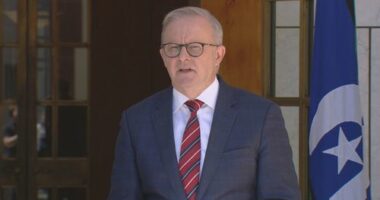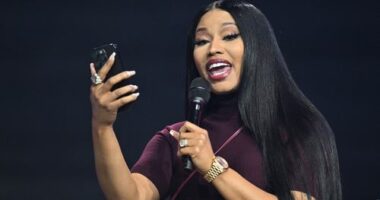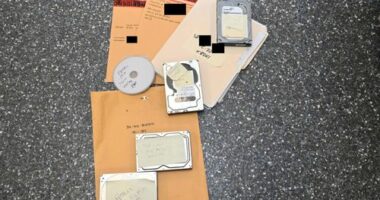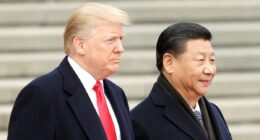Share this @internewscast.com
The Chinese ambassador to Australia has criticized NATO’s recent increase in defence spending and cautioned the federal government against emulating the influential military alliance.
This morning, Xiao Qian expressed concern that the pledge by all NATO members—except Spain—to allocate at least 5% of their GDP to defence and security by 2035 is unfairly portraying China as a threat while placing undue pressure on the global economy.

“By inflating international and regional tensions and maligning China’s routine military development, these countries are merely looking for reasons to significantly expand their military budgets, sometimes even overstepping their geographical remit and mission.”
Defence Secretary Pete Hegseth told Deputy Prime Minister and Defence Minister Richard Marles early this month that Australia’s defence budget should be 3.5 per cent, and White House spokesperson Karoline Leavitt echoed that call following NATO’s agreement.

“If our allies in Europe and our NATO allies can do it, I think our allies and our friends in the Asia-Pacific region can do it as well,” she said.
Australia currently spends about 2 per cent of GDP on defence, and an increase to 3.5 per cent would cost the federal budget about $40 billion a year.
Defence capabilities and spending levels were questioned when a Chinese flotilla circumnavigated Australia and conducted live-fire drills in the Tasman Sea in February without advance notice to the Defence Force.

However, Xiao argued China is a peaceful nation â despite its increasing military presence in the South China Sea and US intelligence reports that President Xi Jinping wants the army ready for an invasion of Taiwan by 2027 â and that Australia has no reason to increase its military budget.
“China and Australia are friends, not foes. This should never have been in question,” he wrote.
“China has been always developing bilateral friendship and co-operation with the utmost sincerity and patience, and we hope Australia will work with us in the same direction.”
